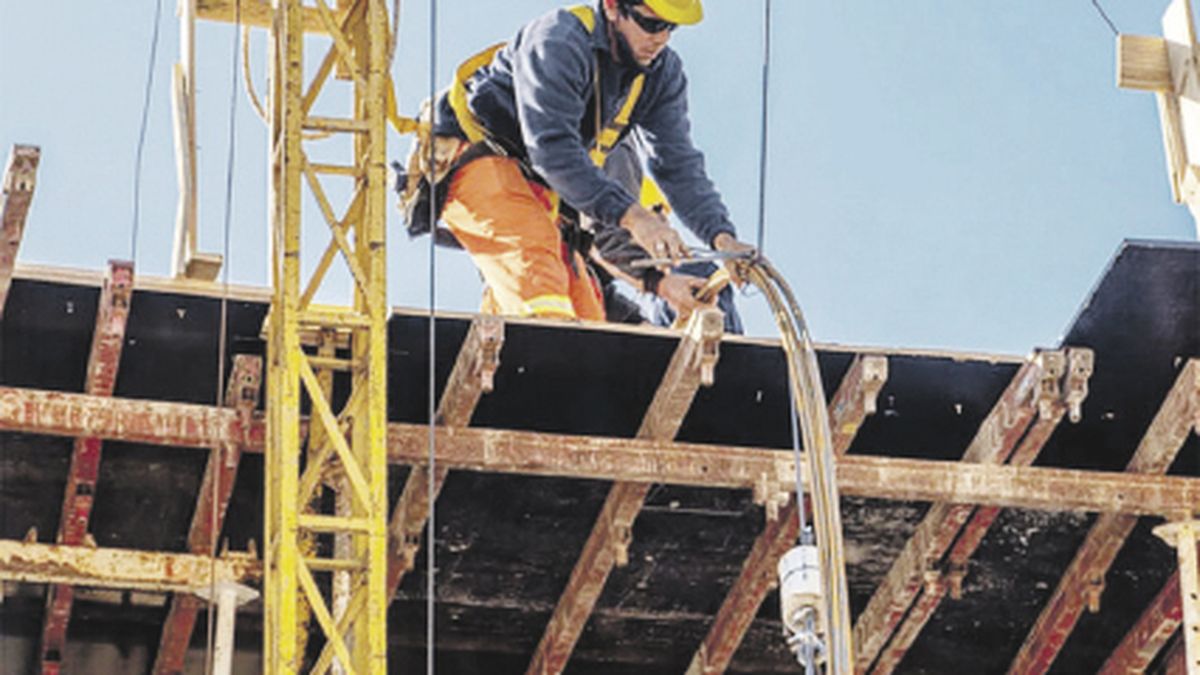At the age of 17, Stefan Ebner from Braunau celebrated his debut as a referee in the game between Sankt Radegund and Treubach/Roßbach. The 33-year-old is now one of the best-known and best referees in Austria and is also used in international games. Ebner still has big goals as a referee in the coming years, including the Champions League. “It is clear that this is very difficult to achieve, but I will work hard and hopefully a lot will still be possible,” says Ebner in an interview with OÖNachrichten. Ebner is one of seven Austrian referees currently refereeing UEFA games.
OÖN: You have been a referee in the Bundesliga for five years now, and you now also referee UEFA games. How do you see your development over the past few years?
Stefan Ebner: I have refereed around 70 Bundesliga games in the past few years. Since the summer of 2023, I have also played in some qualifying games for the Champions League and Conference League. In 2023, I was abroad for around 70 days in total, including seminars and training camps. UEFA differentiates between three categories: Elite, Category 1 and 2. I am currently in Category 2. My medium-term goal is to move up to Category 1. I refereed a first Champions League qualifying game in Bucharest in the summer. That makes you want more. I definitely have the ambition to continue to improve with my well-coordinated team.
How much football do you watch in your free time?
Not too little (laughs). The range is huge, you can watch a variety of games every day. I follow the games in the Champions and Europa League with great interest, especially with the Austrian teams. As a referee you can learn a lot from these games.
You now have the comparison from international games. How would you rate the Austrian Bundesliga from a referee’s perspective?
The Austrian league is very intense to whistle. The main reason is counter-pressing, which most teams prefer. It’s constantly going up and down. In my opinion, the quality of the top games has improved even more, plus there are full stadiums and a lot of emotions. As a referee you are fully challenged for 90 minutes. The level of football is impressive. Even if it is presented differently from time to time, we referees don’t have to hide about our achievements either.
In your opinion, are there particularly big differences between national and international games?
The styles of play are very different, especially when it comes to possession football. But the biggest difference is something else: If I referee a game in Austria, whether in the Bundesliga or the Second League, then everyone knows me. This can involve certain prejudices as well as sympathies. Internationally no one usually knows you, but the pressure is probably even greater for me in these games.
Why?
Me and my team have goals. In the summer we decided to be able to referee a group game in the Conference League this season. If you “screw up” a game, then you have to pause. The pressure is there, it’s part of the meritocracy, you have to be honest like that. The reviews internationally so far, recently at a U17 European Championship qualifying tournament, have been consistently positive. Maybe we can still lead a group game. In the Bundesliga, I have to be honest, I wasn’t happy with “my” start to the season. I’ve made too many mistakes, but that’s part of it too.
What skills or character traits do you think are particularly important for referees?
You are not only physically challenged, but also mentally. It may be that with a heart rate of 180 you have to make a potentially decisive decision in a very short time. What is required is a mixture of on-the-spot leadership and tact. I prepare for the games as best I can, which means I study the teams and certain processes, such as standard situations, so that I know what to expect. But even if I’m as prepared as possible, I don’t know what to expect. What helps me a lot is working with a sports psychologist who goes into the sessions excellently prepared.
The fitness criteria for referees is high. What does this look like in detail, which tests have to be completed and how much training is necessary?
I train between eight and twelve hours a week, which is a mix of running and strength training. On Tuesdays and Thursdays there are base training courses in Linz that you can attend. Performance tests are scheduled four times a year. At more than 30 degrees in summer you reach your absolute limit here. In general, the training process is based very much on personal responsibility. You also have to take care of regeneration and physiotherapy yourself. It’s great that I’ve been able to train at any time at the sports field in Sankt Peter am Hart, where I live, for a long time. I can get there in three minutes by bike. For example, I do my interval runs and sprints on the soccer field.
How has the use of VAR changed the referee’s job? Would you say it makes your job easier or does it add additional challenges?
Both. Basically, it’s good to know that you still have the opportunity to correct important decisions. The pressure when it comes to performance as a referee is the same. Because if a decision is corrected by the VAR, then the mistake still happened and that is taken into account in the referee’s evaluation. What is more important, of course, is that the right decision comes out of the interaction between the referee and VAR.
“}”>
Image: GEPA pictures
Source: Nachrichten




